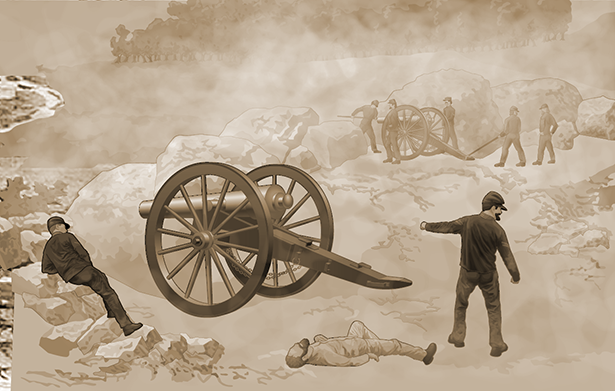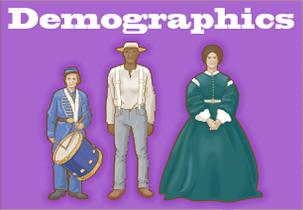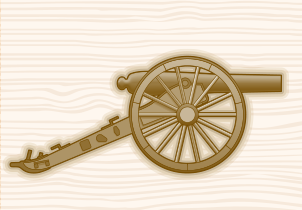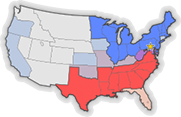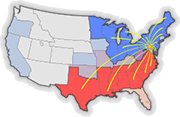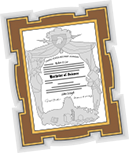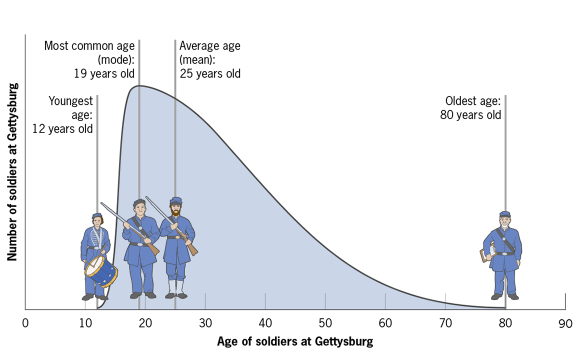
The average age of a soldier at Gettysburg was 25 (mean), although there were those as old as 80 and as young as 12 (range) in the army on both sides. The most common age was 19 (mode).
Questions:
What are the mean, median, and mode ages for players of your favorite sport?
How old is the oldest player?
The youngest?
How important is age in sports? In the military?
In other fields?
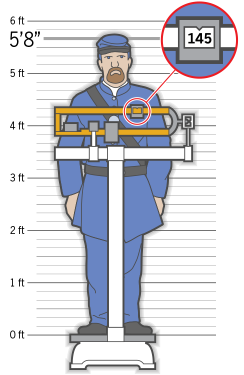
The average height of men in 1863 was 5 feet 8 inches (68 inches).
The average weight of a Union soldier was 145 pounds
Questions:
What are the average height and weight for American males your age today?
What about for adult American males today?
What might be the reason(s) for the differences between then and now?
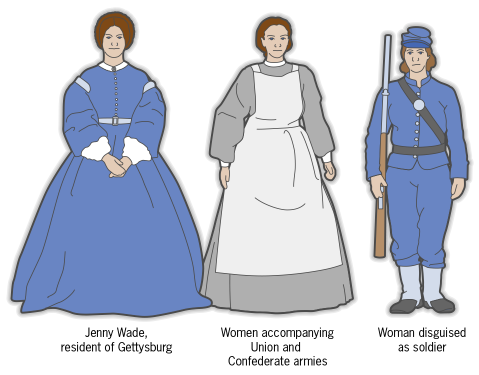
The only civilian to die at the Battle of Gettysburg was Jenny Wade.
A number of women who marched with the armies were wounded or killed at the Battle of Gettysburg, and at least one woman disguised as a soldier was killed.
Question:
How much have women been involved in wars since the Civil War?
What have
their roles been?
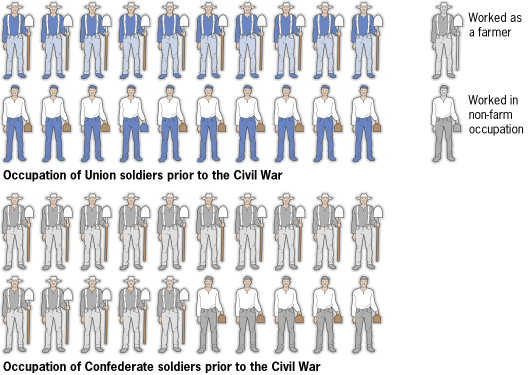
About 75% of Confederate soldiers were farmers, and about 50% of Northern soldiers were farmers.
Questions:
What do you think was the most common previous occupation of soldiers who joined the U.S. military in the last 20 years?
Why were so many Civil War soldiers farmers?
Why such a big difference between the farmer
percentage
from north and south?
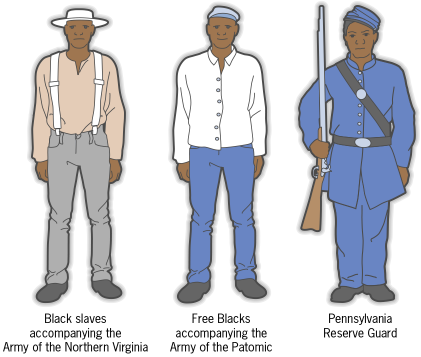
Non-White: There were an estimated 1,000 African Americans who participated in the Battle of Gettysburg, including slaves who accompanied the Army of Northern Virginia, free blacks who accompanied the Army of the Potomac, and a Pennsylvania “home guard” reserve unit which was activated when Confederate troops marched into the state.
Question:
Imagine a conversation between a slave and a free black from the Army of the Potomac if they had met and been able to talk after the battle. Write it as a script or record it as a podcast.
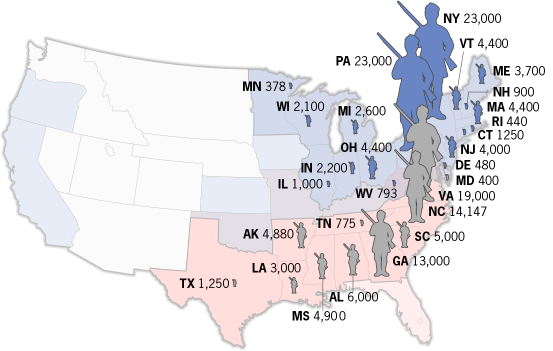
Soldiers came from almost every state at the time. A large number of union soldiers came from Pennsylvania (PA) and New York (NY). On the Confederate side, many soldiers came from Virginia (VA), North Carolina (NC), and Georgia (GA).
Question:
Why did certain states have more or fewer soldiers involved in the Civil War? How did the two sides (Union and Confederate) get soldiers? How is this different from the way countries build armies today?
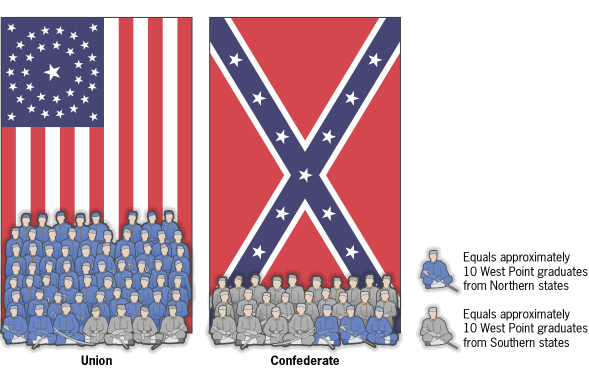
Many officers at Gettysburg attended the US Military Academy, known as West Point. Imagine the friendships and the shared knowledge they would have had from being in school together and from studying military strategy with the same professors. “Nine hundred and seventy-seven West Point graduates from the classes of 1833 through 1861 were alive when the Civil War began. Of these men, 259 (26%) joined the Confederacy and 638 (65%) fought for the Union. Eight did not fight for either side. Thirty-nine graduates from these classes who had come to West Point from Southern states fought for the Union and 32 who had come from Northern states fought for the Confederacy.”
Questions:
What other college or university graduates a large portion of the experts in a certain field? So they end up working together or in competition? Where else in history can you find examples of leaders whose loyalties were tested? Is loyalty important in sports and other places in life?
Close x |
TeachersFirst.com ⋅ Thinking Teachers Teaching Thinkers® ⋅ Copyright © 1998-
Warning: date(): It is not safe to rely on the system's timezone settings. You are *required* to use the date.timezone setting or the date_default_timezone_set() function. In case you used any of those methods and you are still getting this warning, you most likely misspelled the timezone identifier. We selected the timezone 'UTC' for now, but please set date.timezone to select your timezone. in /usr/www/users/teachers/teachersfirst.com/gettysburg/demographics.php on line 285
2024 by The Source for Learning, Inc. All rights reserved.


